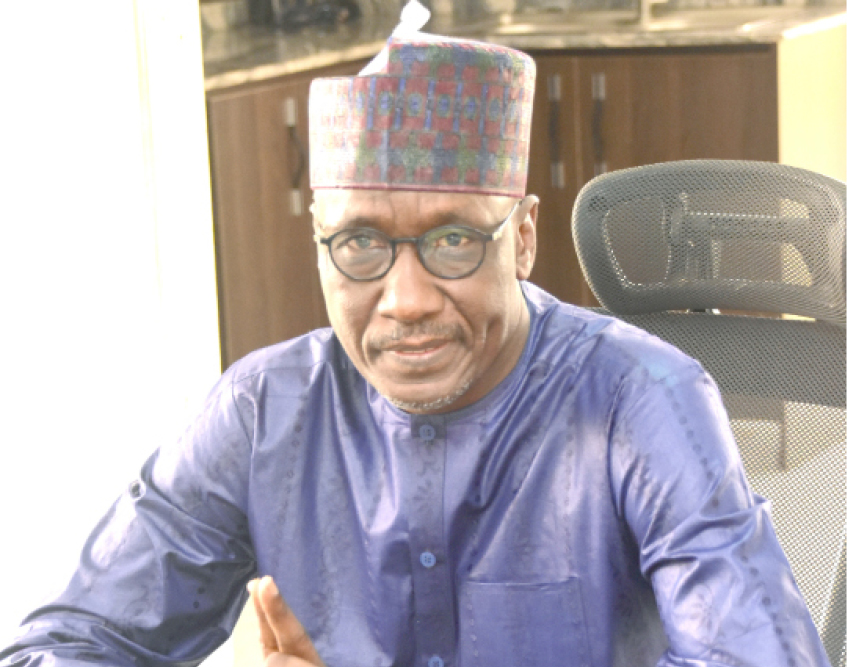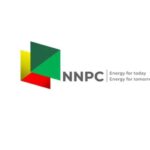In this interview, Malam Mele Kyari, the Group Chief Executive Officer, Nigerian National Petroleum Company (NNPC) Limited, spoke on reforms at the company and its target for Nigeria to attain over 3million barrels of oil production per day in the near future.
Where are we on the NNPC rebranding; has anything changed?
Absolutely. The law anticipates that the NNPC Limited would be a commercial company that would deliver dividends to its shareholders, which would also ensure energy security for the country.
It means that we have to transform from that corporation we have always known, which has recourse to public funds, to a company that will not have any recourse to public funds. It also means that we have to be a company that will abide by all the best practices in the industry, corporate governance, transparency, accountability to shareholders and having a governance structure that ensures that we meet the requirements of the Company and Allied Matters Act (CAMA). So, it is a new situation.
Does it mean that it will no longer be managed as the treasury of the government?
No; not at all. It has never been, but it is more difficult today because this company must pay taxes and pay royalties as any other company in the country. Also, when it makes profit, it must declare dividends to its shareholders. So, the shareholders will benefit from the taxes and profits that will naturally come from this business. Once those values are transferred to shareholders, they can determine what they will do with their dividends or the taxes and the royalty. It is a very different setup. Today, for the NNPC not to pay taxes will be a breach of the law and this company can be sanctioned.
- Hope as Buhari inaugurates Dangote Refinery tomorrow
- APC tackles Tambuwal over renaming of educational institutions
What the law did was to detach it from the overall governance associated with the federation account, going to the appropriation to get your projects done, passing through certain processes that a typical government establishment does. That means the price of this is performance, and you must perform above them and deliver value to shareholders. So, there is really no issue around the government coming in and pursuing anything the NNPC must do. It must be planned and budgeted for; and it will have commercial value.
The refineries have not been working, how are they now?
Before I took over as a Group Managing Director, it was very obvious that we could not continue to operate those refineries, economically and commercially. In context, when you put in $100 crude oil, you produce some $70 product. That means you are literally losing 30 per cent of this value because of the inefficiencies in the system and the way turnaround maintenance was literally mismanaged over the years. Let’s call it what it is. And of course, that happened because of a number of issues and the NNPC was losing control of the processes. The fact that we have to resort to the federation to find financing for the rehabilitation of these refineries and the very fact that decision making is very difficult because you have to subject it to so many other processes that can cause delays is a problem.
When you have to go through the normal regulatory process of getting a contract on your site you can take a minimum of 18 months to achieve this, but when you have an unbundled company, which can make business decisions, there are some decisions I can actually take in three months instead of 18 months. So, the combination of those bad decisions and the process that led us to this became completely unmanageable at a point.
We have very clear contracts, deliverables and timelines. As we speak, work is going on at the Port Harcourt refinery. Our plan is to bring it on stream this month, but unfortunately, we have some slippage because of global supply chain issues we had.
It is no longer turnaround maintenance. That’s why we also did something different, which is that we didn’t want to have recourse to public funds. Therefore, we decided to borrow to fix the refinery because when you borrow, it puts pressure on you to perform because the borrower’s payment is tied to the ability of this plant to work. That is why we borrowed to fix the Port Harcourt refinery. We are also borrowing to fix the Warri and Kaduna refineries.
What about the pipelines to transport crude to the refineries?
The pipelines are not intact. There is work in progress. Remember, there are two things. One is that we are doing a total rehabilitation of the pipeline network to put a new set of lines from Escravos into Warri, all the way to Kaduna. The existing line can take crude deployed to a certain level of capacity. Seventy per cent to 80 per cent of the capacity can be provided by the current assets we have. There are some segments of the web that we are doing sectional replacement, and they will be available to produce crude oil until we have the new lines put in place.
Where are we on the search for crude in the local basins?
What we call frontier basins, where you do not have commercial oil but there is a very good indication of the presence of petroleum is why the NNPC has been working over all the frontier basins, from Sokoto, Bida, Dahomey Basin, which is close to Epe in Lagos, as well as the Anambra platform, Calabar embankment, middle lower and upper trough, and the Chad basin.
Work has been going on for a long time. We didn’t have a commercial discovery until we found the Kolmani. It is a huge finding, and that is why we just don’t consider discovering oil, but of course, we get to develop everything we have as a first step as a proof of concept, then we can now scale it up subsequently.
The Kolmani is commercial, both in terms of crude oil and gas, otherwise we will not even start the development process. Now, what we found out in Kolmani gave us insight into the overall Benue trough and an understanding of the frontiers in itself and all the other reef systems we have in the county.
We call them the reef system because of our understanding of oil in the counties around the Niger Delta. We call it Delta environment. The combination of these is that we now have a line of sight around activities in the frontier in the Bida, Sokoto and Dahomey basins, as well as ultra deepwater Niger Delta. Of course, this is not our call, it is the call of the Nigerian Upstream Petroleum Regulatory Commission, but we are their agents and contractors. We are also looking at the potential of not just through the bid process but to see how the NNPC can come into start exploration in ultra deepwater.
There is a huge chance of finding oil in all these locations. Until you drill you cannot say you have oil, but the signatures we have indicate that it has potential progress in many industries.
There are some views that the oil search in the North is political; what is your view on this?
The oil and gas industry is blind to politics, but once you have commercial oil, it will be put on the table. It is impossible for you to declare reserves; there’s a process for it. The regulatory agency has data and there is evaluation. There’s physical evidence that we have oil. We have taken core samples from Kolmani. We know that this is science and it is not a hidden science; therefore, it is really not a speculation that we have found commercial oil in the Kolmani area.
How are you going to utilise the oil?
The first step is processing; that means we are creating a refinery in the location. We will create power plant in the location, we will also create a gas-based industry. That way, we are commercialising it, then as you are discovering it, it becomes expanded. You will now see how else we evacuate crude oil from a landlocked location. That means you have very few options. One option is to pipe it through the regular line into Kaduna refinery and all the way through the pipeline to the port. The second is to run another line all the way to the port, and that is also something you can also consider. Currently, we are looking at the in-situ processing. Also in many countries like Canada, oil is moved on train.
Our first focus is to deliver the in-situ refining experiment, and when Mr President flagged it off, we promised that we would get it done in 36 months and deliver it.
What about the bigger operations in the Niger Delta?
Let me start with how good it is. Close to a year ago, we saw the absolute danger the activities of vandals and oil thieves were causing our country, so we started the process for the approval of Mr President and his directive so as to do something different. We brought all the government’s security agencies, private security contractors, communities, our partners, everybody on the table and said we needed to do something different. And we came up with a scheme that would respond to that situation. At that point in time, when you pumped 100 barrels of oil to Bonny terminal you probably received 10. That means you would be losing over 90 per cent of the production along the pathway. And when companies saw this happen for one or two days, they shut down. At one point, Bonny terminal was doing zero and we had to shut it down.
The scale of this disaster is massive and we have taken down close to 3,000 illegal refineries. And of course, the activity we have done has reduced this substantially. Today, Bonny terminal losses are less than 2 per cent. That means when you pump it, although we still have the insertions on the pipeline, the containment we have with the government security agencies and the private security contractors and how we have manned the pipeline make it impossible for those new illegal refineries to come up in the speed they were doing before.
Is this model sustainable?
It is sustainable because there’s one element we added to the community, which is now interested in making sure that this pipeline works. It creates value for them; it also cleans the environment and makes it a sustainable environment. It is not about peace-making, it is a reality check to see who can have access to the community. It was that determination that brought us to engage private contractors.
The ongoing Ajaokuta-Kaduna-Kano (AKK) gas pipeline project has a component for power plants; what is the status so far?
We have almost completed contracting, so we will commence construction of the Abuja power plant within this month or latest by next month. There are some contractual issues we haven’t completed, but I believe we will start it soon so that we can now have power in Abuja, create a power plant in Kaduna and Kano. That way, power comes close to his consumed consumers, transmission through the grid becomes easier and it’s just very typical. Once you are able to do this in our industry, it would naturally pick up and those that are packed up because of low power would pick up and production will come up.
As you are doing this, have you solved the problem of gas to power in some plants?
We are resolving the pricing issues. We are already delivering gas to most of them. And for few of them that don’t have gas supply, we are working on the process.
You hinted on the Nigeria-Morocco gas pipeline, are we still on that?
The Nigeria-Morocco gas pipeline is one of the most ambitious projects we have and is going to cost over $25billion, but more than anything, it is going to connect 11 West African countries to our gas sources; and that way, we will be creating prosperity around Nigeria. You are creating peace around you and also creating a market for the huge gas we have. Ultimately, that gas will now end up in Europe.
Where will you get those billions to construct it?
The world is ready to finance it. We have substantial indications of closure around financing. Many financial institutions have come on the table. By the way, the world needs the gas and they will finance it.
How does the NNPC react to the global energy transition?
The first thing is that energy transition is real. Climate change is real; nobody is disputing this. The contribution of our business to climate issues is also real. And our country is committed to net zero by 2060. Net zero doesn’t mean that petroleum is going to disappear, what it is saying is that we are going to have cleaner use of petroleum, there will be less emissions into the environment; and therefore, although petroleum will be there, it is to be converted to other uses. The best estimate we have seen is that even by 2050 you will still have a demand for 200million barrels of oil equivalent per day from this sector. There’s also a forecast that over 50 per cent of energy for power will come from the petroleum, even by 2050. So, it is only going to change the form, but it’s not going to eliminate the use of petroleum.
How would the NNPC achieve its 3m or 4m barrels per day ambition?
There are a number of steps. Number one is to resolve security, which is very critical so that you can get back the confidence of investors. We have achieved that substantially, but there are still places that are supposed to be occupied; and that’s what we are working on to see that we can eliminate the security challenges we have, particularly in the Niger Delta region.
Now, as you are addressing security, people will come back to put money into it so that more investment must come. Investment will only come when people have confidence and competence, and that means that disputes are minimised, which we have done completely. Partners now have a new trust in their partner the NNPC. There is total fiscal liberalism, which has happened with the Petroleum Industry Act (PIA) that has created a very robust fiscal framework, where when you invest in this country you will make as much value as you can with any other country of equal status. That means that you have a very excellent fiscal environment we were working on.
Unfortunately, and more importantly, our middle class is growing, demand is growing, so there is absolute necessity for you to grow this production so that they can meet the local demands and also to create the resources you need so that we have a clear plan.
The 3million barrels per day are not a mirage. It is very practical, but it didn’t happen in the past because a number of things were there. Our fiscal environment is a major thing and thrust of our investing communities. And we are getting all of them back.
The NNPC is building its own capacity and company of 500,000 barrels per day. And we don’t think it is difficult to do.
Are you confident that with a new government there will still be this forecast?
Very well. I don’t see any issue with the government because it needs resources to bring infrastructure, education and health. And we know that this industry contributes over 48 per cent of total government revenues. So, we know that the government will surely focus on this industry. They will come to bring back the growth. We delivered on the gas to increase production so that more resources will be available to do the other sectors of the economy.

 Join Daily Trust WhatsApp Community For Quick Access To News and Happenings Around You.
Join Daily Trust WhatsApp Community For Quick Access To News and Happenings Around You.


